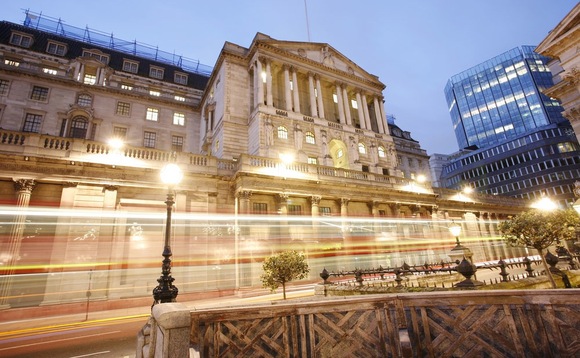The Bank of England has raised interest rates by 0.5%, its largest hike since 1995, as it forecast a recession in the UK by the end of this year.
The bank's Monetary Policy Committee voted 8-1 to raise rates to 1.75%, with only Silvana Tenreyro voting for a smaller 0.25% rise.
These updated forecasts now see the UK falling into recession in the fourth quarter of 2022, as GDP growth continues to slow. The economy would then keep contracting throughout next year, with GDP falling by about 2.1%.
"Real household post-tax income is projected to fall sharply in 2022 and 2023, while consumption growth turns negative," the bank's MPC report read.
It added that it now projects inflation to peak in the fourth quarter of 2022 at just over 13%, remaining at high levels throughout next year, and eventually falling to 2% in 2024.
Last month, it was reported that UK inflation had reached a new 40-year high in June, at 9.4%. After the peak at the end of this year, the bank now projects inflation to fall to 9.5% in a year's time.
The bank's 0.5% hike is the largest increase since it gained independence in 1997.
The MPC also said that it plans to begin selling UK gilts held in the Asset Purchase Facility shortly after its next meeting in September, subject to economic and market conditions being judged appropriate.
This morning, attorney general Suella Braverman said that Conservative leadership candidate Liz Truss is planning to review whether the Bank of England's mandate is "fit for purpose".
Seema Shah, chief strategist at Principal Global Investors, said: "The largest hike in 27 years is the minimum action required by the Bank of England at this stage. With inflation set to hit 13% later this year and set to remain stubbornly high through next year, the central bank needs to tighten policy at an accelerated pace. Indeed, with other developed market central banks already hiking by 0.5% or more, it is a wonder that the Bank of England had been steadfastly sticking to 25bps hikes for so long.
"Unfortunately, policy tightening will inevitably take its toll on the UK economy. Higher mortgage payments and borrowing costs will only add to the awful cost of living crisis, straining household budgets in a way we have not witnessed for over 60 years and plunging the UK into recession later this year. If nothing else, the Bank of England should be applauded for its realistic economic forecast. If only other central banks could be so realistic."





